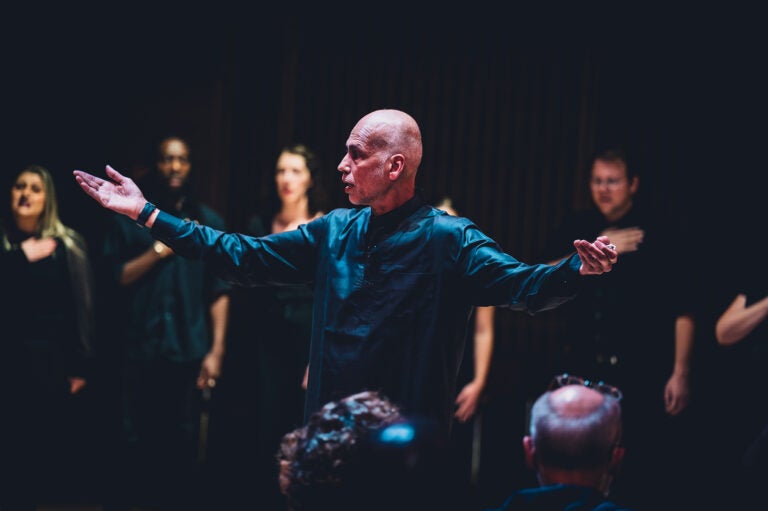Most definitely music with a message
On Saturday, March 25, pianist Manabu Takasawa, a URI professor of music, will perform a lecture-recital, discussing his research on the incarceration of Japanese Americans during World War II and mixing it with music from the era.
And on Sunday, March 26, the URI Concert Choir will host
the voice ensemble VOICES 21C, in collaboration with the URI Center for the
Humanities, for a concert that explores issues of mass incarceration.
For “Making Music Behind Barbed Wire” on Saturday, Takasawa and soprano Yuriko Nonaka, a guest artist, will perform traditional folks songs, piano and vocal pieces by Japanese composers, and popular songs by George Gershwin and Cole Porter – with each work punctuating a point of Takasawa’s talk on the internment camps.
During World War II, the U.S. incarcerated about 127,000 people of
Japanese descent, including U.S. citizens, in about 75 concentration camps,
mostly on the West Coast – in what today is considered one of the worst
violations of American civil rights.
“My focus for the lecture and recital is to shed some light on how the residents kept their spirits up and remained productive under the most unusual circumstances,” said Takasawa.
“Residents largely managed their camp
themselves, children went to school, and there were religious and social
gatherings. Cultural and social activities were a large part of the life in
these camps, which helped the residents forget their daily inconveniences
temporarily and cope with the injustice.”
“Through learning about the daily life of camp residents, I would
like the audience members to learn how people can be resilient under
unfortunate circumstances,” he added. “The Japanese Americans somehow made the
most of the situation and still were able to create something beautiful in such
things as musical performances, artworks, and gardens.”
Takasawa has researched the interments for the last couple of
years, conducting interviews, reviewing archival work, visiting camp sites and
areas and neighborhoods associated with Japanese Americans.
“It has been over 40 years since I moved to the United States from
my childhood hometown in Japan, and I have increasingly been interested in the
lives of immigrants, Japanese Americans in particular,” said Takasawa, who will
present his research at a music conference in Japan in June.
“Making Music Behind Barbed Wire” starts at 3 p.m. in the Concert
Hall of the Fine Arts Center, 105 Upper College Road, on the Kingston campus.
Tickets are $15 for general admission; $10 for students and seniors; children
under 12 are admitted free. For tickets, click here.
On Sunday, March 26, the Music Department hosts VOICES 21C, a
Boston-based, community-focused artists’ collective, for a concert that
explores mass incarceration in the U.S.
“We have a strong relationship with them. They have many URI
alumni who sing with them,” said Mark Conley, director of the URI Concert
Choir. “They do important work and they are at the forefront of the movement to
take on issues of social justice. It’s important for our students to be exposed
to their message.”
VOICES 21C, directed by André de Quadros, is dedicated to advancing issues of social justice in the U.S. and abroad, highlighting voices of those who have been silenced, forgotten or marginalized and challenging the understanding of race and the prison industrial complex.
The choir will perform
about a dozen works that will include spoken-word artists Truth and Onyx White,
who were formerly incarcerated. The Concert Choir will perform welcoming and
closing songs, and may join VOICES 21C during its set, Conley said.
The performance is at 5:30 p.m. Sunday in the Concert Hall of the
Fine Arts Center, 105 Upper College Road. Tickets are $15 for general
admission; $10 for students and seniors; children under 12 are admitted free.
For more information, click here.
